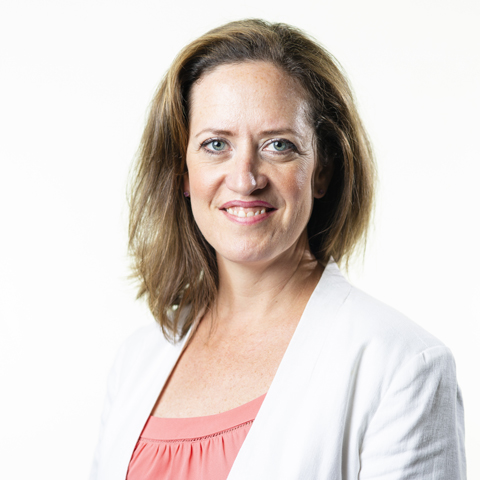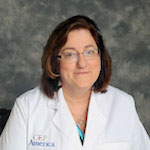Scribing can be valuable experience prior to becoming a physician, physician assistant (PA) or nurse practitioner (NP). At Vituity, many of our scribes have returned as providers after completing their training. Today, Vituity Partners Lori Winston, MD; Linda Herman, MD; and Kunal Sukhija, MD, share valuable tips for scribes applying to professional school to make their application stand out from the crowd.Perspectives: Thanks for joining us today. Can you begin by telling us about your backgrounds and career paths?
Dr. Herman: I started my career in nursing. After three years, I decided to change career paths and went to medical school at Ohio State. I did my emergency medicine residency and fellowship at the University of Illinois. I worked in academics and then took some time off to start a family. I returned to academics and became the program director at Kaweah Delta Medical Center, in Visalia, Calif.
Dr. Sukhija: I was born and raised in Los Angeles. I went to UCLA for medical school and was lucky to be matched at Kaweah Delta for my emergency medicine residency. I was chief resident at Kaweah and was just hired by
Vituity to work at Kaweah Delta.
Dr. Winston: I received my medical degree from Loyola University Stritch School of Medicine and did my residency at Resurrection, both in Chicago. After residency, I stayed in academics, then moved to California to start six residency programs with
Vituity at Kaweah Delta. Those programs are in emergency medicine, anesthesia, family medicine, psychiatry, and transitional year.
Perspectives: What are the main differences between medical school and PA school?
Dr. Herman: First, PA school is usually two years, while medical school is four years. As a physician assistant, you get a lot of the same training as physicians, but PA schools like students to have some prior healthcare experience. If you’re thinking about becoming a PA, investigate schools closely, because not all PA schools recognize scribing as clinical experience. Although
Vituity believes scribing is great preparation for PA school, many PA programs prefer that applicants have hands-on experience such as being a paramedic or respiratory therapist. Medical schools, on the other hand, appreciate students with scribe experience.
Dr. Sukhija: Keep in mind, when you go down the doctor route, you’re looking at as many as eight or nine years of residency and fellowship training, depending upon the specialty you choose. Once you’re done, that’s your specialty, and it’s an uphill path if you want to change specialties. As a PA, it’s fairly easy to transition from an emergency medicine to a surgical PA, for example.
Dr. Herman: Once you get into a profession, many people think nursing is easier. It’s not. You still have to do continuing education, buy your license every few years, stay current, and teach your juniors. That’s what I found out as an intensive care nurse. I realized I could do the doctor thing. One profession isn’t any easier than the other.
Dr. Winston: PA schools also want a lot of volunteer hours — as many as 1,000–2,000 hours. Medical schools typically require about 300 hours. Many medical schools also want students to conduct research while PA schools don’t really weigh that.
Perspectives: What can applicants do to ensure they have a really strong letter of recommendation?
Dr. Sukhija: What worked well for me was to put together an application packet with my curriculum vitae, MCAT scores, academic transcripts, and personal statement. This gave the people writing letters on my behalf a full picture of my background and professional goals.
It’s also very helpful to sit down and talk with the person writing your letter. Tell them why you want to go to medical school and why you think you’d make a good physician. Make sure you have a strong relationship with that person so they will stick their neck out for you and write a very competitive letter on your behalf.
Dr. Herman: Generally, a letter of recommendation starts out with strong points about you and why you want to attend medical school. Be sure to cover the traits you think the professional school is looking for. Are you responsible? Do you understand medical terminology? Can you think on your feet? Mention those traits to the person writing your letter. A lot of providers aren’t used to writing letters of recommendation, so you want to make it easy for them.
Dr. Winston: Start planting the seeds for letters of recommendation early — at least four months before you actually need them. Legacy matters, too. I’ve had a lot of success writing letters for people to my alma mater.
Perspectives: What are some considerations for writing a strong personal statement?
Dr. Herman: What medical schools want is a well-balanced person. They don’t want someone who got straight A's but never did anything except go to school. Be interesting, be honest, and be humble. Tell them why you want to be a doctor and why you chose their medical school.
Dr. Winston: Whoever is reading your letter is thinking, “Do I want this person to become a physician?” A big pitfall is that people often reiterate what they already have in their application. Grab their attention and don’t be dry. I know people want to be safe, but you really want your personality to shine.
Dr. Sukhija: One thing that worked well for me was to give a rough draft of my personal statement to a friend who was a literature major. He turned my idea into a well-written personal statement that popped. It was still my idea and my voice, but I’m a scientist, not a writer. Just keep in mind that there is a lot of help out there. You don’t have to do this alone.
Dr. Winston: Also, if you have a grammatical error on your personal statement, your application is going to go to the bottom of the pile. With so many applicants, anything we can use to cull some applications from the stack, we’ll use. Your application must be spotless. Print it out and have a couple of people review the entire thing.
Perspectives: How can applicants prepare for the interview?
Dr. Sukhija: They’re going to ask you questions to determine your values. At my school, they used the MMI [
Multiple Mini Interview], and one of the questions was a value judgment question/ethics scenario around a patient care situation. Your answers to those questions can make or break you. Take advantage of the many preparatory tools available to help you practice these types of questions.
Dr. Herman: Interviewers also want to know that you have some knowledge of where healthcare is going. They want to see that you understand what’s happening with attempts to
repeal and replace the Affordable Care Act, for example.
Dr. Sukhija: Absolutely. That shows maturity on your part that you can communicate with interviewers about healthcare legislation and current events.
Perspectives: How can medical school students put themselves in a good position for residency training?
Dr. Herman: If your grades or MCAT scores are poor, a foreign medical school will probably accept you. But the chances of getting into a specialty residency program after a foreign medical school are low. If you want to go into family practice or internal medicine, a foreign school is probably fine. But we don’t have enough spots in residency for everyone who applies. Put yourself in a good position and hold out for an American medical school.
Dr. Winston: International medical school graduates have about a 50 percent match rate. You don’t have to go to one of the prestigious U.S. medical schools to get into a residency program. If you’re in the top half of your class at a small or lesser-known U.S. medical school, you will be in a good position for residency training.
At
Vituity, we understand that scribing can be
a great stepping stone to a healthcare career. We encourage our alumni scribes who have gone on to professional school to stay in touch with us.
Are you a former scribe who's now a health professions student, physician, or advanced provider? If so, we'd love to share your story here on Perspectives. Contact the editor for more info.
And of course, we'd love to have you back at Vituity. For the latest opportunities, check out our careers page.
























